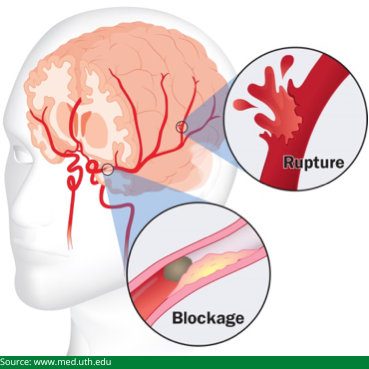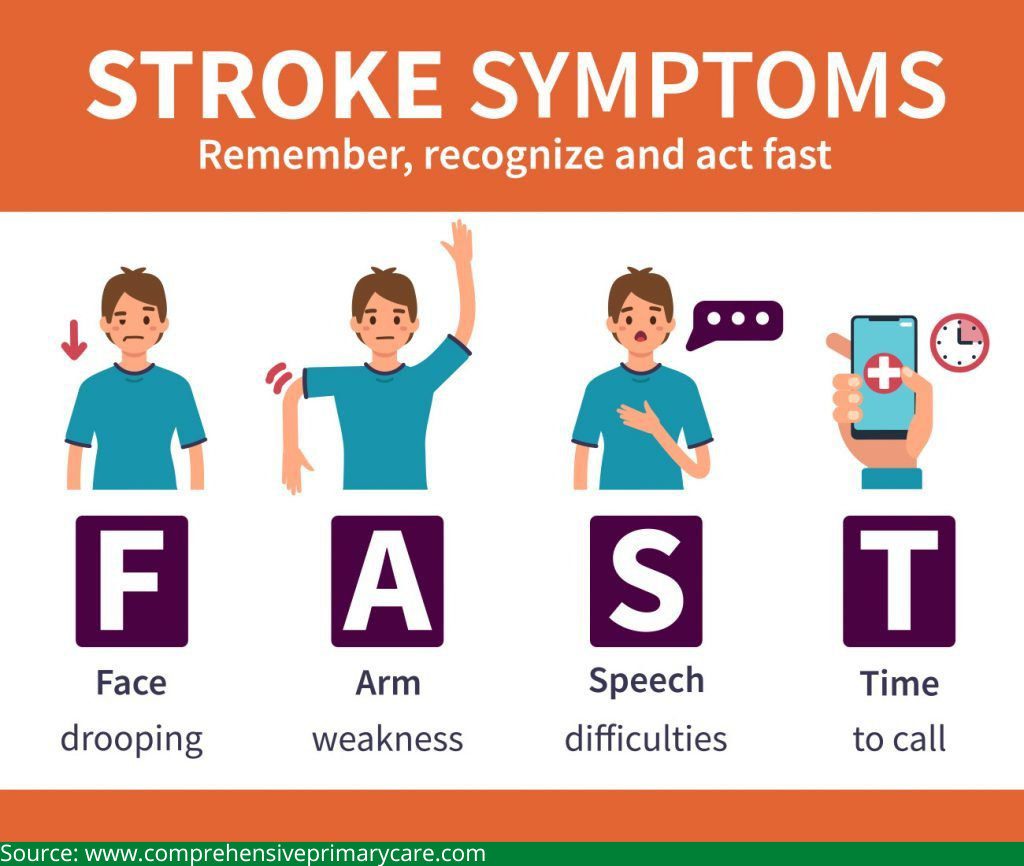A stroke happens when a portion of your brain’s blood flow is blocked or diminished, depriving it of essential oxygen and nutrients. This could be the result of a blood vessel bursting or becoming clogged. The brain cells start to degenerate within minutes due to a lack of blood supply.
The medical emergency of a stroke can result in permanent brain damage, speech difficulties, paralysis, and even death.
Dr. Gurneet Singh Sawhney, among the best neurosurgeons in India, cautions that stroke symptoms appear rapidly, and as the minutes go by, more brain cells are lost. He cannot stress enough the fact that time is of the essence when it comes to a devastating medical emergency like a stroke.
Thankfully, there are effective stroke treatments available that can significantly improve outcomes. The crucial factor is how soon you get medical help.

What are the different types of strokes?
The most prevalent kind of stroke is brought on by a clot that prevents blood from reaching the brain. It is referred to as an ischemic stroke.
Ischemic strokes fall into one of two categories:
- Thrombotic stroke: When a clot forms in one of the arteries that carry blood to your brain, it results in a thrombotic stroke. Atherosclerosis, a buildup of fatty deposits on the walls of your arteries, may be the source of the clot.
- Embolic stroke: A stroke that happens when a clot originates in another area of your body, like your heart, and then moves to your brain.
Other less typical stroke types include:
- Hemorrhagic stroke: This form of stroke occurs when a blood artery in your brain bursts and bleeds into your brain.
- Cerebral venous thrombosis: This refers to a stroke that happens when a clot develops in the veins that remove blood from your brain.
What can trigger a stroke?
There are many possible causes of a stroke, including:
- A blockage in an artery that supplies blood to the brain, such as a blood clot
- A bleed in the brain caused by a ruptured blood vessel
- A narrowing of the arteries due to fatty deposits (atheroma)
- Heart conditions that can cause blood clots, such as atrial fibrillation
What are the potential risk factors of a stroke?
The key factors that raise your risk of getting a stroke include:
- High blood pressure – Patients frequently are unaware that they have hypertension or high blood pressure, which is why it is known as the silent killer, according to Mumbai’s acclaimed spine surgeon, Dr. Gurneet Singh Sawhney. You will not know you have it, and it does not hurt or make its presence felt. Therefore, it is necessary to check your blood pressure regularly.
- High cholesterol – According to Dr. Gurneet Singh Sawhney, the same goes for checking your cholesterol regularly. Cholesterol is a waxy, fatty molecule that flows through your body via the bloodstream as lipoproteins. It may result in plaque buildup and obstruct your blood vessel. Heart disease and stroke risk factors include high triglycerides, low HDL (high-density lipoprotein, also known as good cholesterol), and high LDL (low-density lipoprotein, also known as bad cholesterol).
- Unhealthy diet – Saturated fats can raise your blood cholesterol levels, which can invite a stroke. Saturated fats come from animal sources such as beef, poultry, pork, etc. There is strong evidence that a Mediterranean diet can lower your risk. The Mediterranean diet emphasizes eating 5 or more servings of vegetables and fruits each day. It also focuses on healthy fats, such as those found in nuts, olive oil, and seafood.
- Sedentary lifestyle – Leading a life where you do not conduct physical activities is detrimental to your overall health. Not only do your bones and joints need active stimulation to stay healthy, but regular exercise is also critical to keep yourself fit and get rid of excess fat. Dr. Gurneet Singh Sawhney, an accomplished neurosurgeon in Mumbai, says that the “good” cholesterol, high-density lipoprotein (HDL), can be increased with moderate physical activity.
Other common risk factors of stroke include:
- Diabetes
- Heart condition
- A history of stroke or TIA (transient ischemic attacks)
- A stroke history in the family
- Smoking
- Being overweight or obese
- Excessive consumption of alcohol
- Using illegal drugs
- Certain blood issues
- Certain heart issues
- Some forms of birth control
- Some autoimmune disorders
- Sickle cell disease
- Sleep apnea
The FAST method to detect a stroke

Face –Ask the person to smile, as a stroke affects your brain it restricts movement on a part of your face. So if a smile droops on one side, it may be a sign of a stroke.
Arm – Ask them to raise their hands, if one arm is drifting downward, it may be a sign.
Speech –Ask them to say something, if their speech seems garbled or strange, that could be a sign.
Time –The above signs need immediate attention. Remember, time is of the essence. Get help immediately.
How can you prevent a stroke?
You can help lower your risk of experiencing a stroke by taking action to prevent or manage the above-mentioned risk factors. These actions include:
- Consuming a balanced diet
- Regular exercise
- Maintaining a healthy weight
- Giving up smoking
- Reducing your alcohol intake
- Keeping your blood pressure under control
- Keeping a check on your cholesterol
- Taking care of your diabetes
If you or a loved one has a history of TIA or a family history of stroke, please speak with Dr. Gurneet Singh Sawhney, a neurosurgeon known for his expertise in brain surgery in Mumbai, for strategies to lower your risk.
Conclusion

A stroke is a medical emergency that happens when the blood flow to the brain is cut off. As a result, the brain cells lose access to oxygen and start to degrade. Strokes can result in paralysis, speech difficulties, and other issues. A stroke is a life-threatening condition, and getting medical intervention at the earliest is essential to reducing the risk of brain damage and other problems. Having a stroke might change your life and cause feelings of powerlessness, depression, and frustration.
If you or a loved one suspects symptoms of a stroke, please take action fast – every second counts. Please get in touch with Dr. Gurneet Singh Sawhney, a top-notch spine and brain surgeon in Mumbai, at the earliest for medical intervention.
